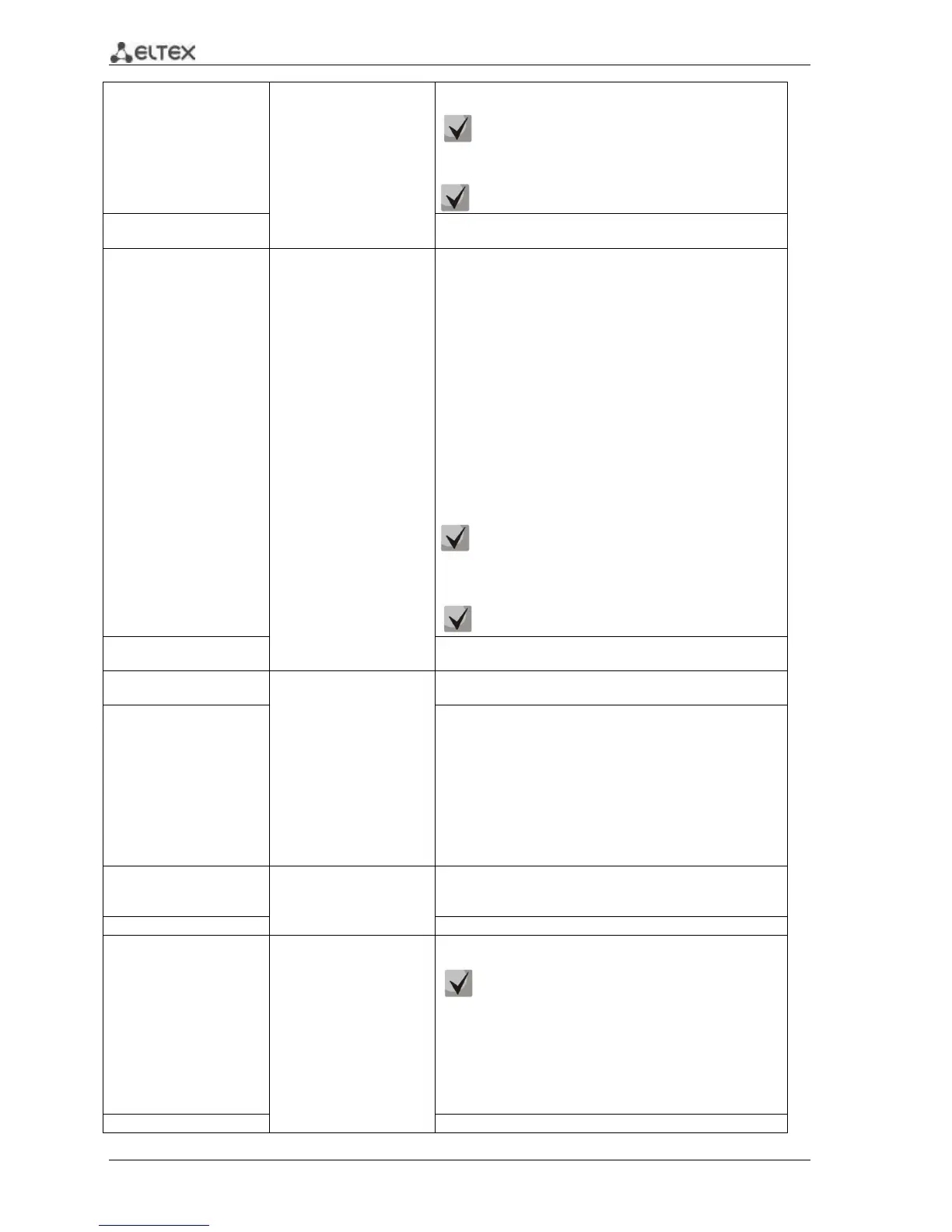208 MES1000, MES2000 Ethernet Switches
strategy.
Only one traffic classification strategy can be
supported for one direction.
The policy-map value is set to DSCP=0 by default for IP
packets and to CoS=0 for tagged packets.
Valid for the qos advanced mode only.
no policy-map
policy-map-name
Removes the traffic classification rule.
qos aggregate-policer
aggregate-policer-name
committed-rate-kbps
excess-burst-byte
[exceed-action {drop |
policed-dscp-transmit}]
aggregate-policer-name:
(1–32) characters
committed-rate-kbps: (3–
57,982,058)
committed-burst-byte:
(3000–19,173,960)
Defines a configuration template which allows bandwidth
limitation and at the same time guarantees a certain data
transfer rate.
The "marked bucket" algorithm is used for work with
bandwidth. The goal of the algorithm is to make a decision
whether to send or drop a packet. The algorithm parameters
are: the rate of token arrival to the "bucket" (CIR) and the
"bucket" size (CBS).
- excess-rate-kbps—average traffic rate, kbps. This rate is
guaranteed.
- committed-burst-byte —size of the burst threshold in bytes;
- drop—a packet will be drop if the "bucket" is full;
- policed-dscp-transmit—if the "bucket" is full, the DSCP value
will be overwritten.
A configuration template cannot be deleted if it is
used in the policy map strategy. The template
assignment to the strategy should be removed before the
template deletion: no police aggregate aggregate-policer-
name
Valid for the qos advanced mode only.
no qos aggregate-policer
aggregate-policer-name
Deletes a template of channel rate configuration.
wrr-queue cos-map
queue-id cos1…cos8
queue-id: (1–4);
cos1…cos8: (0–7)
CoS default values for
queues:
CoS = 1—queue 1
CoS = 2—queue 1
CoS = 0—queue 2
CoS = 3—queue 2
CoS = 4—queue 3
CoS = 5—queue 3
CoS = 6—queue 4
CoS = 7—queue 4
Defines CoS values for outgoing traffic queues.
no wrr-queue cos-map
[queue-id]
wrr-queue bandwidth
weight1 weight2 weight3
weight4
(0–255)/1
The weight of any queue
equals 1 by default.
Weights all outgoing queues with the help of WRW (Weighted
Round Robin).
priority-queue out
num-of-queues
number-of-queues
number-of-queues: (0..4)
All queues are processed
according to "strict priority"
by default.
Sets the number of priority queues.
The WRR weight will be ignored for a priority queue.
If N is not 0, then N higher queues will be considered
as priority queues (WRR will be ignored).
Example:
0: all queues are equal;
1: 3 lower queues will be considered in WRR, the 4th one will
not;
2: 2 lower queues will be considered in WRR, the 3th and the
4th ones will not.

